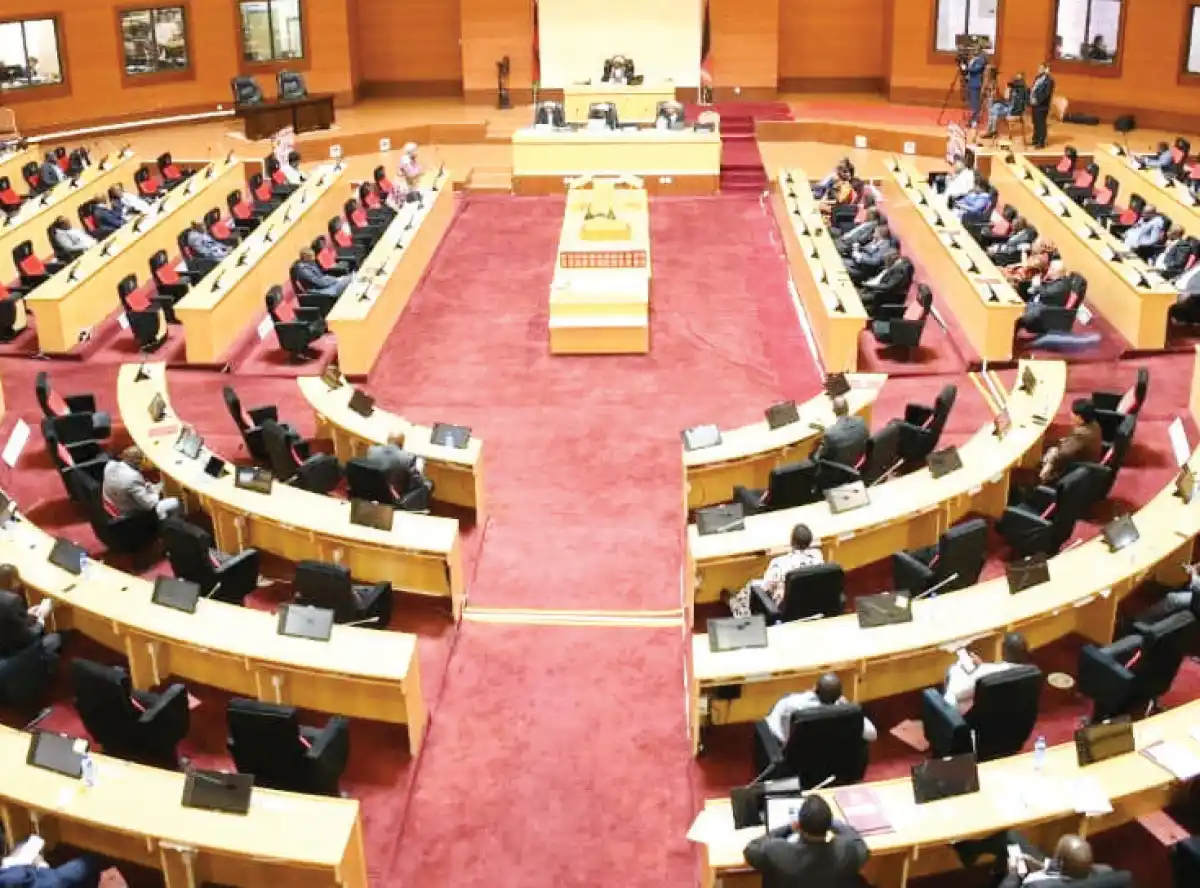
In May 2019, the-then Finance minister Joseph Mwanamvekha stood in Parliament and presented a K1.731 trillion 2019-20 national budget.
Of the total budgeted amount, K437.9 billion was for development, with the rest being foreign recurrent expenditures.
That is to say foreign financed projects comprised 70 percent of the development budget, with domestically financed projects standing at 30 percent.
In 2020, Mwanamvekha was back with the K2.190 trillion 2021-21 national budget of which K511.2 billion was for development. The development budget consisted of K410.3 billion for foreign financed projects and K100.9 billion for domestically financed projects.
This means that foreign financed projects made up 80 percent of the development budget, with domestically financed projects at just below 20 percent.
In 2021, came Finance minister Felix Mlusu with a K1.990 trillion budget for 2021-22 of which K570.8 billion was development expenditure.
Mlusu did not give a breakdown of how much of the K570.8 billion meant for development would be foreign financed and how much would be domestically bankrolled.
In 2022, Finance minister was Sosten Gwengwe and he presented a K2.840 trillion national budget, of which development expenditure was pegged at K820.67 billion comprising K580.9 billion foreign resources and K239.7 billion domestic resources.
That is to say, in the budget, domestically financed projects comprised 29 percent of the total development budget.

Fast forward to February 2024, Finance Minister Simplex Chithyola Banda presented a K5.98 trillion 2024-25 national budget, of which K1.77 trillion was for development.
Of the total development budget, K1.39 trillion was for foreign financed projects and K383.6 billion was for domestic financed projects.
This meant that the percentage of domestically financed projects was at 21 percent, with the remaining 78 percent being foreign financed.
And in the recently approved K8.05 trillion 2025-26 national budget, development expenditure is seen at K2.01 trillion, of which K1.44 trillion is for foreign financed projects and K578.60 billion is for domestic financed projects.
This means that Malawians will contribute 28 percent to their country’s development for the current financial year.
Looking at the development budgets for the country over the years, one thing is very clear; the contribution of Malawians towards the development of their country has been minimal, with the highest being 30 percent.
In other words, the development of Malawi largely depends on foreigners who contribute about 70 percent on average to the country’s development budget.
So, in such circumstances, can one be wrong to say that Malawi has delegated its development to foreigners?
Economist Milward Tobias says one would be correct to say Malawi has delegated development to foreigners given the fact that nearly all major and impactful development projects are financed by development partners.
“There is potential to free up and channel more domestic resources toward development projects. There is a lot of luxury and wastage that when sanitised, fiscal space will be created. That, however, requires strong and competent political leadership,” Tobias said.
Economics Association of Malawi (Ecama) President Bertha Bangara Chikadza believes this would be an oversimplification of the current situation.
According to Chikadza, the development budget allocations from 2022-23 to 2025-26 show an average of 77 percent of actual spending being financed by donors.
“This indicates primary dependence on foreign funding for infrastructure, key social programmes and other economic initiatives.
“It poses a risk to development projects as some donor countries have pulled out some of their support and others signal to move in a similar direction,’ Chikadza said.
She was, however, quick to note that while this may indicate a certain level of dependence, the government still sets the budget priorities to ensure they are in line with Malawi’s long-term development targets, and implementation often involves local agents.
Scotland-based economist Velli Nyirongo said, technically, Malawi has effectively delegated much of its development responsibilities to foreign entities due to its heavy reliance on external financing for development projects.
He said in recent years, foreign aid has constituted up to 73 percent of the country’s development budget, reflecting a dependency that undermines domestic ownership and long-term sustainability.
“Aligning budgetary frameworks with long-term national strategies such as MW2063 can further ensure resources are directed toward productive sectors. By prioritising sustainable domestic financing, Malawi can build a self-reliant and resilient economy,” Nyirongo said.
Economist Marvin Banda said it is not that Malawi has delegated development to foreigners but, rather, that these are the types of projects development partners want to finance in terms of development.
Treasury spokesperson Williams Banda asked for more time before he could comment on the matter.
In 2021, Malawi embarked on a journey to prosperity when it launched its long-term blueprint, the Malawi 2063.
In his foreword in the Malawi2063 document, President Lazarus Chakwera says donors continue to support Malawi’s development programmes.
National Planning Commission spokesperson Thom Khanje said the Malawi 2063 envisions a Malawi that is inclusively wealthy and self-reliant by 2063.
Khanje, however, said the vision also recognises that this cannot be achieved overnight and that, as a country, Malawi has to work progressively to achieve that.
“As a country, therefore, we’ll continue to rely on development partners to support us in our development endeavours while we are working tirelessly to become inclusively wealthy and self-reliant,” Khanje said.
Indigenous Businesses Association of Malawi President Mike Mlombwa said Malawi has struggled to effectively finance its development architecture because most Malawians remain in poverty.
In the final analysis, it is time for Malawi to start matching its development dreams with the necessary resources to help it actualise the vision. Too much consumption will take the country nowhere.








0 Comments